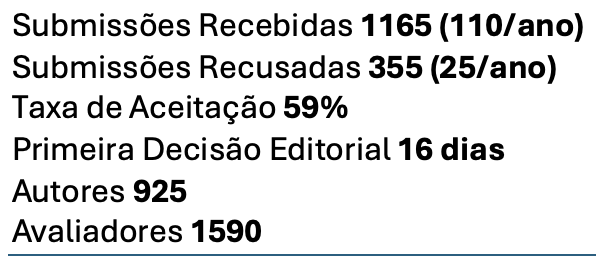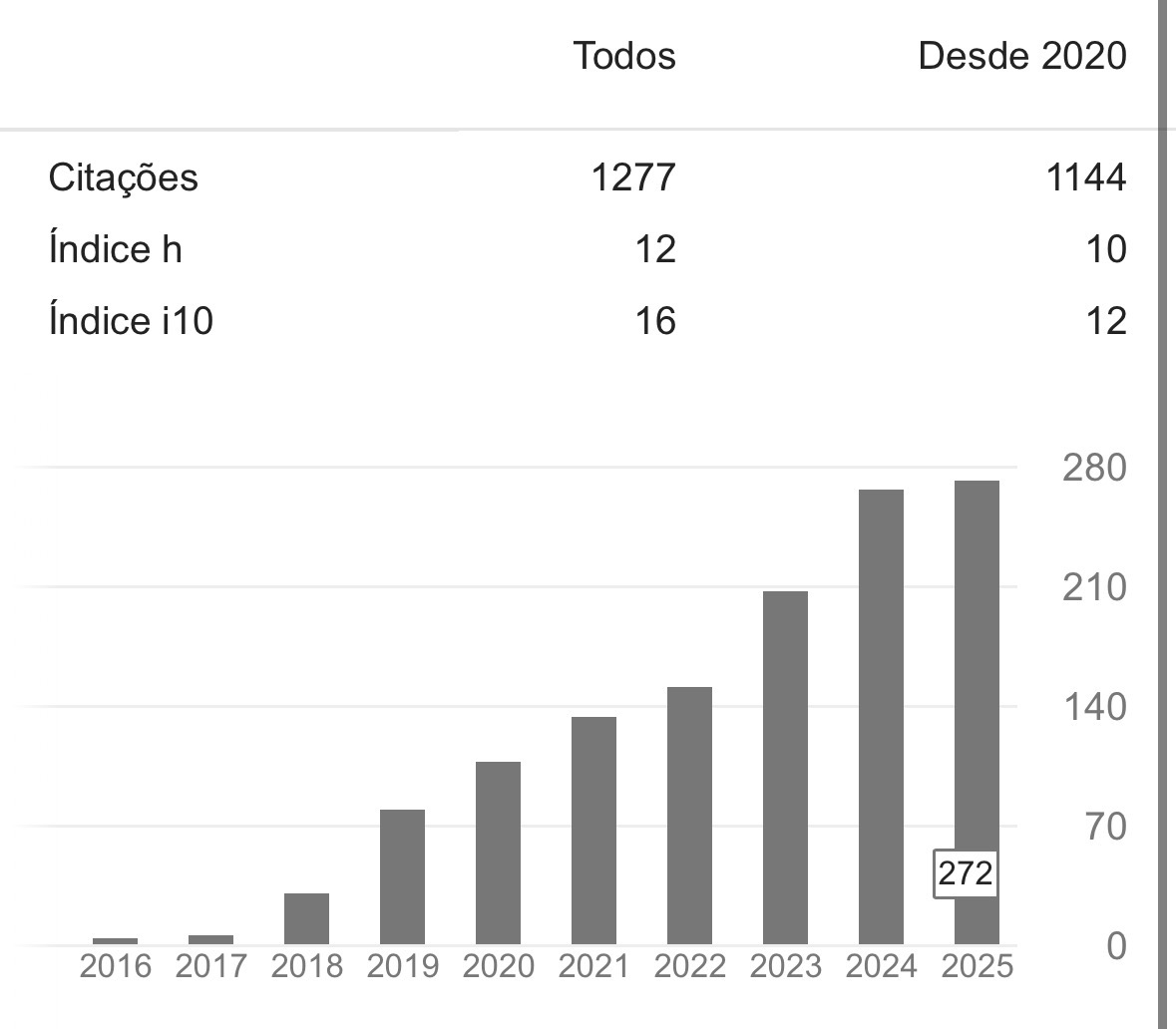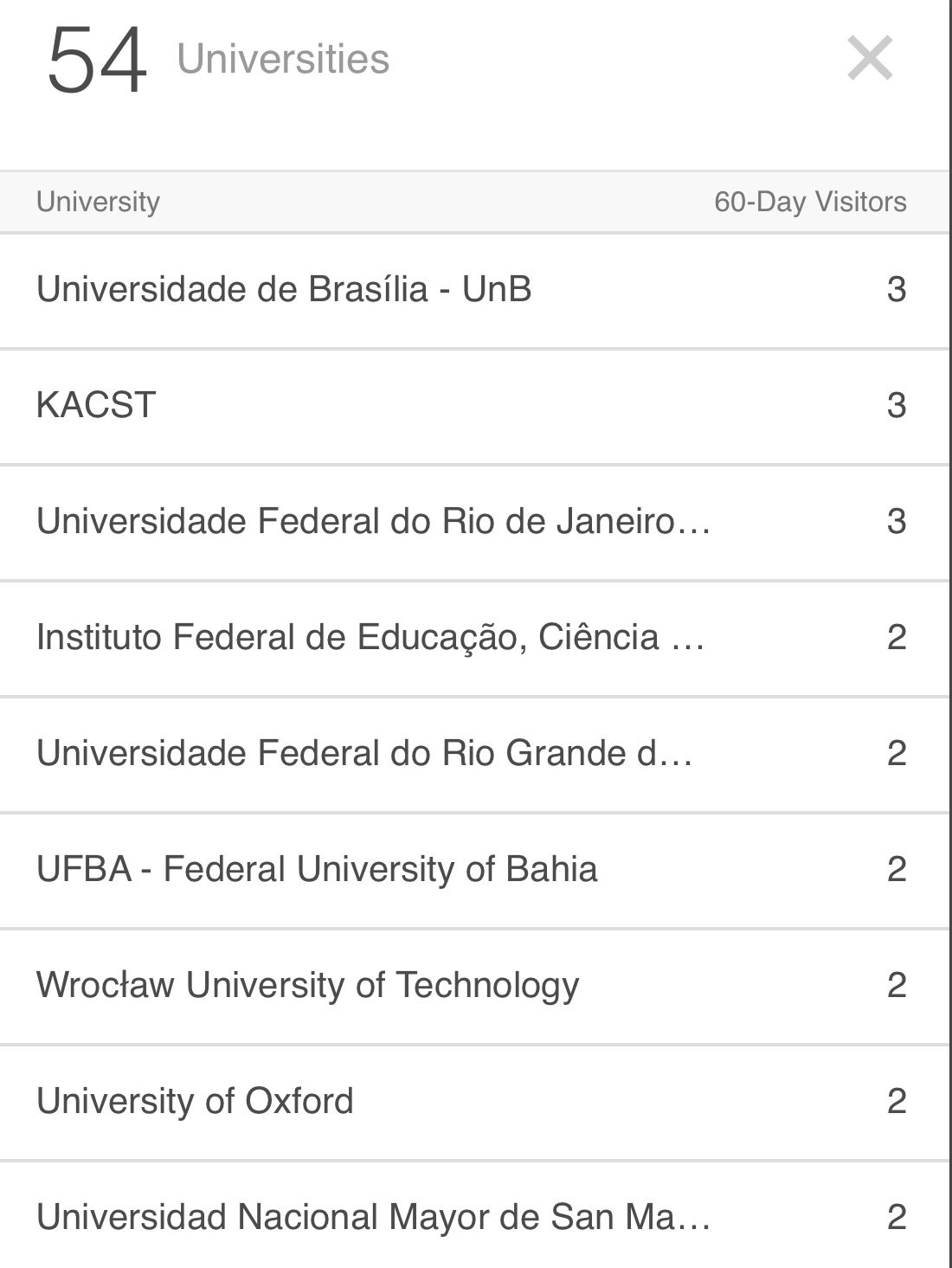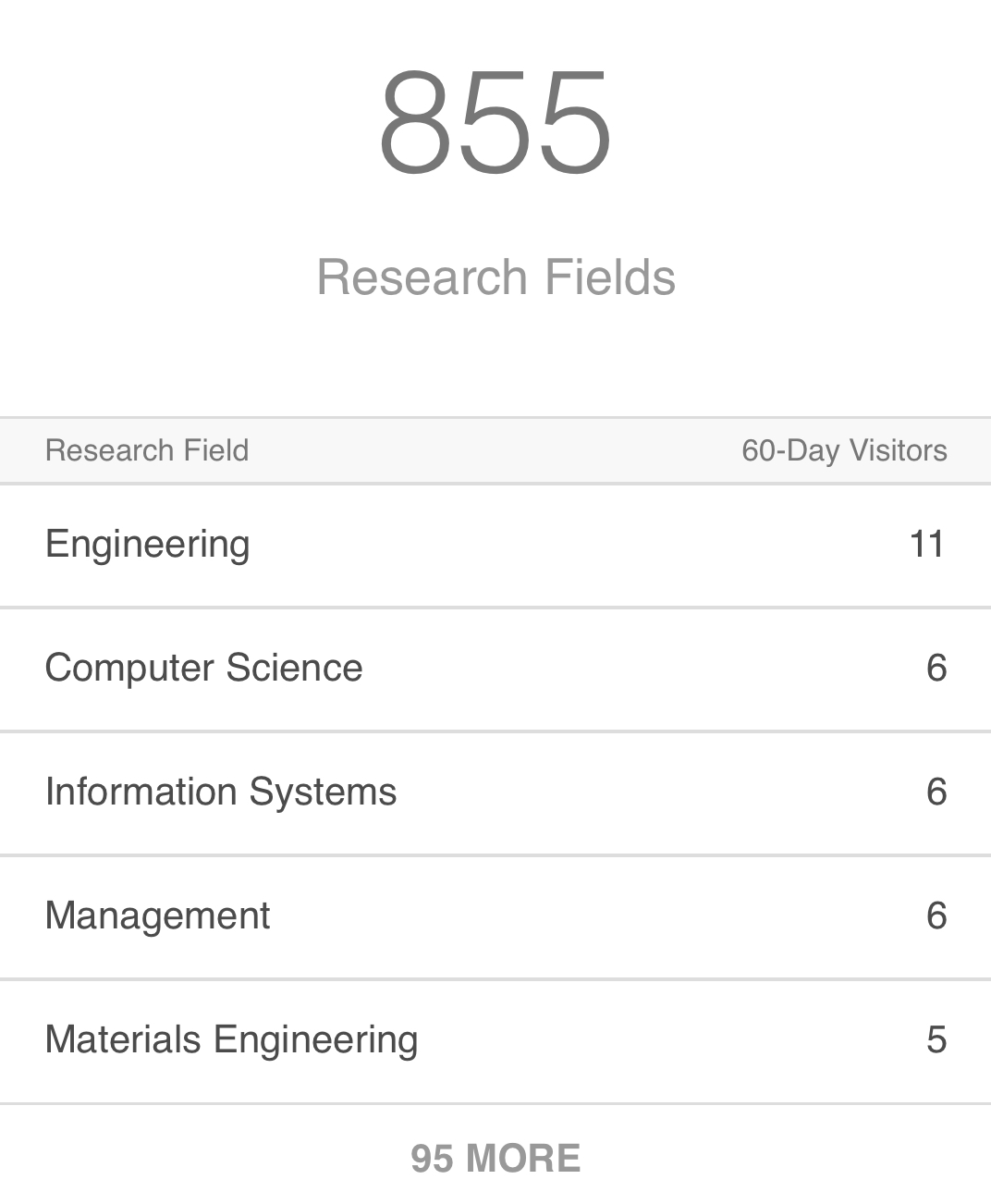A local search heuristic for nurse assignment problems with personal preferences
DOI:
https://doi.org/10.47456/bjpe.v10i2.44130Palavras-chave:
Hospital Administration, Heuristics, Local SearchResumo
Recently, research into healthcare optimization has experienced exponential growth, arousing significant interest from researchers and healthcare organizations. This increase in interest is driven by the complexity and relevance of the challenges faced by society, and is directly related to the growing need to improve processes and the search for greater efficiency in healthcare systems on a global scale. The aim of this study is to develop an optimization approach, based on computational heuristic, to perform the planning and assignment of nurse professionals in hospital sectors in order to maximize both the personal preferences of the professionals and the efficiency of health care services. The proposed method uses a heuristic optimization algorithm based on local search with solution perturbation mechanisms and efficient search neighbourhoods. The computational results showed that the method could perform efficient assignments of nursing professionals in hospital sectors, optimizing job satisfaction and quality of service provided. In conclusion, the study evidenced that the developed method allows efficient management and assignment of nurse professionals in hospital settings, achieving scientific and practical contributions to the areas of healthcare optimization and hospital administration.
Downloads
Referências
Abdalkareem, Z. A., Amir, A., Al-Betar, M. A., Ekhan, P., & Hammouri, A. I. (2021). Healthcare scheduling in optimization context: a review. Health and Technology, 11, 445-469. https://doi.org/10.1007/s12553-021-00547-5 DOI: https://doi.org/10.1007/s12553-021-00547-5
Awadallah, M. A., Bolaji, A. L. A., & Al-Betar, M. A. (2015). A hybrid artificial bee colony for a nurse rostering problem. Applied Soft Computing, 35, 726-739. https://doi.org/10.1016/j.asoc.2015.07.004 DOI: https://doi.org/10.1016/j.asoc.2015.07.004
Bilgin, B., Demeester, P., Misir, M., Vancroonenburg, W., & Vanden Berghe, G. (2012). One hyper-heuristic approach to two timetabling problems in health care. Journal of Heuristics, 18, 401-434. https://doi.org/10.1007/s10732-011-9192-0 DOI: https://doi.org/10.1007/s10732-011-9192-0
Burke, E. K., Curtois, T., Post, G., Qu, R., & Veltman, B. (2008). A hybrid heuristic ordering and variable neighbourhood search for the nurse rostering problem. European journal of operational research, 188(2), 330-341. https://doi.org/10.1016/j.ejor.2007.04.030 DOI: https://doi.org/10.1016/j.ejor.2007.04.030
Camargo, F. C., Fonseca, C. C. M., Pereira, G. de A., Manzan, W. A., & Junior, H. B. N. (2018). Produção nacional sobre Softwares apoiadores da atuação de enfermeiros hospitalares. Journal of Health Informatics, 10(4), 125-130. Retrieved from https://jhi.sbis.org.br/index.php/jhi-sbis/article/view/584
Castaño, F., & Velasco, N. (2020). Exact and heuristic approaches for the automated design of medical trainee’s rotation schedules. Omega, 97, 102107. https://doi.org/10.1016/j.omega.2019.102107 DOI: https://doi.org/10.1016/j.omega.2019.102107
Chen, P. S., Huang, W. T., Chiang, T. H., & Chen, G. Y. H. (2020). Applying heuristic algorithms to solve inter-hospital hierarchical allocation and scheduling problems of medical staff. International Journal of computational intelligence systems, 13(1), 318-331. https://doi.org/10.2991/ijcis.d.200310.004 DOI: https://doi.org/10.2991/ijcis.d.200310.004
Chen, P. S., Tsai, C. C., Dang, J. F., & Huang, W. T. (2022). Developing three-phase modified bat algorithms to solve medical staff scheduling problems while considering minimal violations of preferences and mean workload. Technology and Health Care, 30(3), 519-540. https://doi.org/10.3233/THC-202547 DOI: https://doi.org/10.3233/THC-202547
Constantino, A. A., Landa-Silva, D., Melo, E. L. de, Mendonça, C. F. X. de, Rizzato, D. B., & Romão, W. (2014). A heuristic algorithm based on multi-assignment procedures for nurse scheduling. Annals of Operations Research, 218, 165-183. https://doi.org/10.1007/s10479-013-1357-9 DOI: https://doi.org/10.1007/s10479-013-1357-9
Du, G., Jiang, Z., Yao, Y., & Diao, X. (2013). Clinical pathways scheduling using hybrid genetic algorithm. Journal of Medical Systems, 37, 1-17. https://doi.org/10.1007/s10916-013-9945-4 DOI: https://doi.org/10.1007/s10916-013-9945-4
Gür, Ş. & Eren, T. (2018). Application of operational research techniques in operating room scheduling problems: literature overview. Journal of Healthcare Engineering, 2018, 1-15. https://doi.org/10.1155/2018/5341394 DOI: https://doi.org/10.1155/2018/5341394
Liu, Z., Liu, Z., Zhu, Z., Shen, Y., & Dong, J. (2018). Simulated annealing for a multi-level nurse rostering problem in hemodialysis service. Applied Soft Computing, 64, 148-160. https://doi.org/10.1016/j.asoc.2017.12.005 DOI: https://doi.org/10.1016/j.asoc.2017.12.005
Mendonca, E. A. & Tachinardi, U. (2018). Artificial Intelligence and Medicine: “times are a’changing”. Journal of Health Informatics, 10(4), 1-2. Retrieved from https://jhi.sbis.org.br/index.php/jhi-sbis/article/view/684
Millard, D., Mesmer, B., Gholston, S., & Kuhn, S. (2018). Optimization of Nurse Staffing under Varying Preferences. Journal of Management & Engineering Integration, 11(1), 11-19. Retrieved from https://www.proquest.com/scholarly-journals/optimization-nurse-staffing-under-varying/docview/2316725562/se-2
Mohd Rasip, N., Basari, A. S. H., Ibrahim, N. K., & Hussin, B. (2015). Enhancement of nurse scheduling steps using particle swarm optimization. In Sulaiman, H., Othman, M., Othman, M., Rahim, Y., Pee, N. (eds), Advanced Computer and Communication Engineering Technology (Volume 315, Chapter 45, pp. 459-469). Springer, Cham. https://doi.org/10.1007/978-3-319-07674-4_45 DOI: https://doi.org/10.1007/978-3-319-07674-4_45
Mutingi, M. & Mbohwa, C. (2014). Healthcare staff scheduling in a fuzzy environment: A fuzzy genetic algorithm approach. Annals International Conference on Industrial Engineering and Operations Management, Bali, Indonesia, 3038-3047. Retrieved from https://hdl.handle.net/10210/13071
Özder, E. H., Özcan, E., & Eren, T. (2020). A systematic literature review for personnel scheduling problems. International Journal of Information Technology & Decision Making, 19(06), 1695-1735. https://doi.org/10.1142/S0219622020300050 DOI: https://doi.org/10.1142/S0219622020300050
Rahimian, E., Akartunalı, K., & Levine, J. (2017). A hybrid integer and constraint programming approach to solve nurse rostering problems. Computers & Operations Research, 82, 83-94. https://doi.org/10.1016/j.cor.2017.01.016 DOI: https://doi.org/10.1016/j.cor.2017.01.016
Soares, C. R., Peres, H. H. C., & de Oliveira, N. B. (2018). Processo de Enfermagem: revisão integrativa sobre as contribuições da informática. Journal of Health Informatics, 10(4), 112-118. Retrieved from https://jhi.sbis.org.br/index.php/jhi-sbis/article/view/550
Strandmark, P., Qu, Y., & Curtois, T. (2020). First-order linear programming in a column generation-based heuristic approach to the nurse rostering problem. Computers & Operations Research, 120, 104945. https://doi.org/10.1016/j.cor.2020.104945 DOI: https://doi.org/10.1016/j.cor.2020.104945
Wong, T. C., Xu, M., & Chin, K. S. (2014). A two-stage heuristic approach for nurse scheduling problem: A case study in an emergency department. Computers & Operations Research, 51, 99-110. https://doi.org/10.1016/j.cor.2014.05.018 DOI: https://doi.org/10.1016/j.cor.2014.05.018
Xiang, W., Yin, J., & Lim, G. (2015). An ant colony optimization approach for solving an operating room surgery scheduling problem. Computers & Industrial Engineering, 85, 335-345. https://doi.org/10.1016/j.cie.2015.04.010 DOI: https://doi.org/10.1016/j.cie.2015.04.010
You, P. S. & Hsieh, Y. C. (2021). A heuristic algorithm for medical staff’s scheduling problems with multiskills and vacation control. Science Progress, 104(S3), 1-22. https://doi.org/10.1177/00368504211050301 DOI: https://doi.org/10.1177/00368504211050301
Silva, Y. L. T. V. & Silva, N. E. F. (2023). A Hybrid Non-Dominated Sorting Genetic Algorithm with Local Search for Portfolio Selection Problem with Cardinality Constraints. Exacta. https://doi.org/10.5585/2023.22046 DOI: https://doi.org/10.5585/2023.22046
Zhong, X., Zhang, J., & Zhang, X. (2017). A two-stage heuristic algorithm for the nurse scheduling problem with fairness objective on weekend workload under different shift designs. IISE transactions on healthcare systems engineering, 7(4), 224-235. https://doi.org/10.1080/24725579.2017.1356891 DOI: https://doi.org/10.1080/24725579.2017.1356891

Downloads
Publicado
Edição
Seção
Licença
Copyright (c) 2024 Maria Valéria de Carvalho André, Hedivigem Luana Rodrigues da Silva, Yuri Laio Teixeira Veras Silva (Autor)

Este trabalho está licenciado sob uma licença Creative Commons Attribution 4.0 International License.

Todos os trabalhos publicados na Brazilian Journal of Production Engineering (BJPE) estão licenciados sob a Creative Commons Atribuição 4.0 Internacional (CC BY 4.0).
Isso significa que:
-
Qualquer pessoa pode copiar, distribuir, exibir, adaptar, remixar e até utilizar comercialmente os conteúdos publicados na revista;
-
Desde que sejam atribuídos os devidos créditos aos autores e à BJPE como fonte original;
-
Não é exigida permissão adicional para reutilização, desde que respeitados os termos da licença.
Esta política está em conformidade com os princípios do acesso aberto, promovendo a ampla disseminação do conhecimento científico.



2.png)


























































